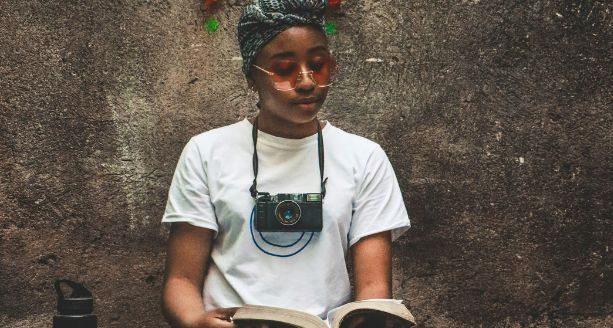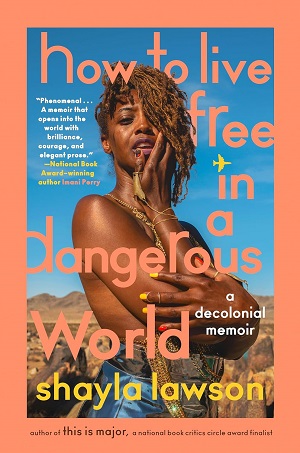
This Poetic Queer Travel Memoir Is Both Heartbreaking and Hopeful
Today’s pick is a memoir from earlier this year that took me around the globe in a way that I have never before experienced through literature.

How to Live Free in a Dangerous World: A Decolonial Memoir by Shayla Lawson
I’ve said this before, but I truly believe that poets write the best memoirs. The essays in this book range from harrowing to heartbreaking to hopeful, and each one is deeply eye-opening. Lawson has a way of making every place and every feeling palpable to readers.
The author is one person who seems to have crammed a hundred lives into their single existence. One essay takes place in Egypt. They and their young woman friends are single and not dressed as modestly as is typical, and they come a little too close to learning exactly how dangerous that could be. They describe with intimate detail a performance piece they experienced in Japan, and reading their description made it feel like I was also there.
Many of the essays are also explorations of being Black in whichever particular city and country they are in during that story. They write about being in Venice, Italy, and the gondolier who was smitten with them while not fetishizing them. They write about being married and living in Roosteren, Netherlands, and constantly battling white saviorism, thinly veiled racism, and food that sounds absolutely terrible. They write about being Black in Harare, Zimbabwe, and being in a car full of other “Black” people driving recklessly in the dark and the realization that, while they could get in trouble, it will not be from a white cop because there, the police are “Black” too. The story about when they were in France at a beautiful dinner party and opted out of the white people shenanigans really resonated with me.
They also write about becoming disabled over time, about love and community, about loss, and about learning and unlearning, especially around gender as a construct and their own identity. Lawson’s travels could easily make them seem unrelatable to folks who have not had such access; however, each essay exudes connection and cultivates understanding.
Want reading recs in your inbox? Sign up for our Read This Book newsletter!








